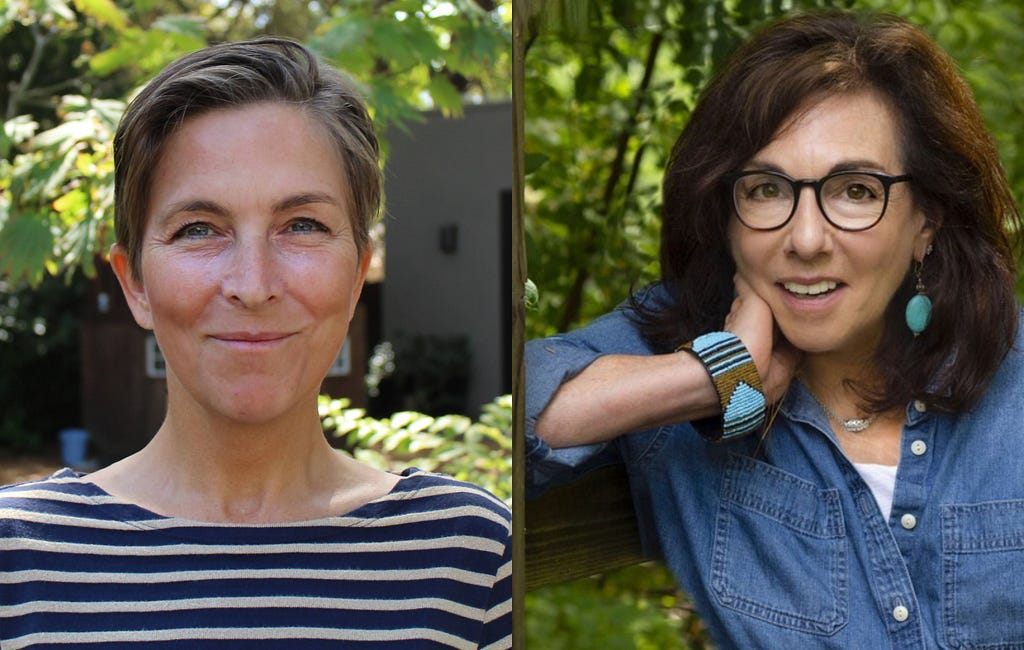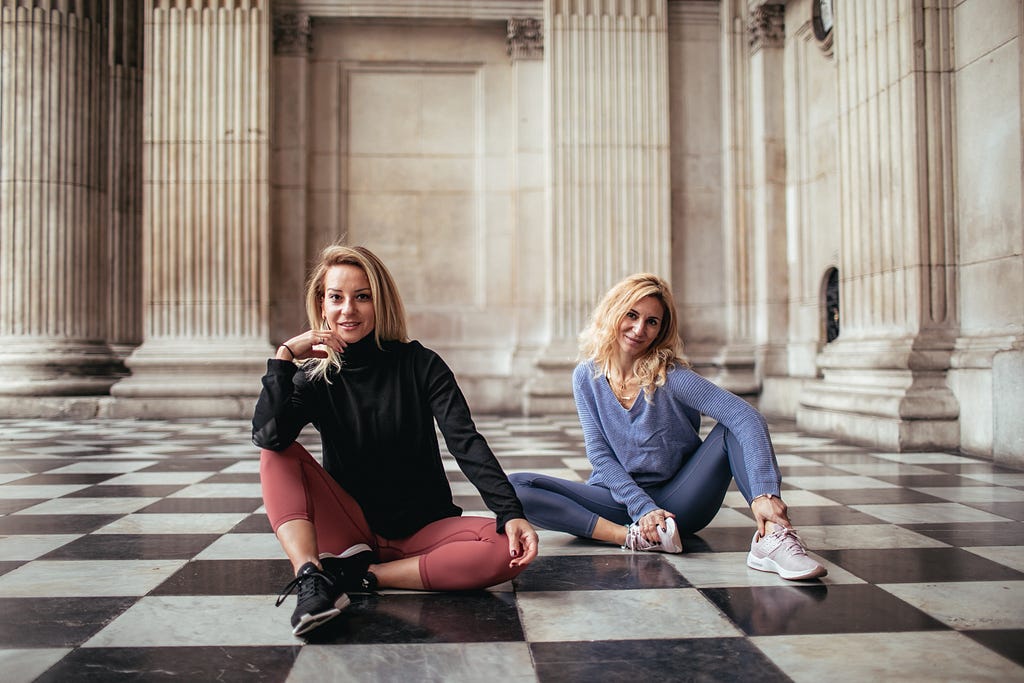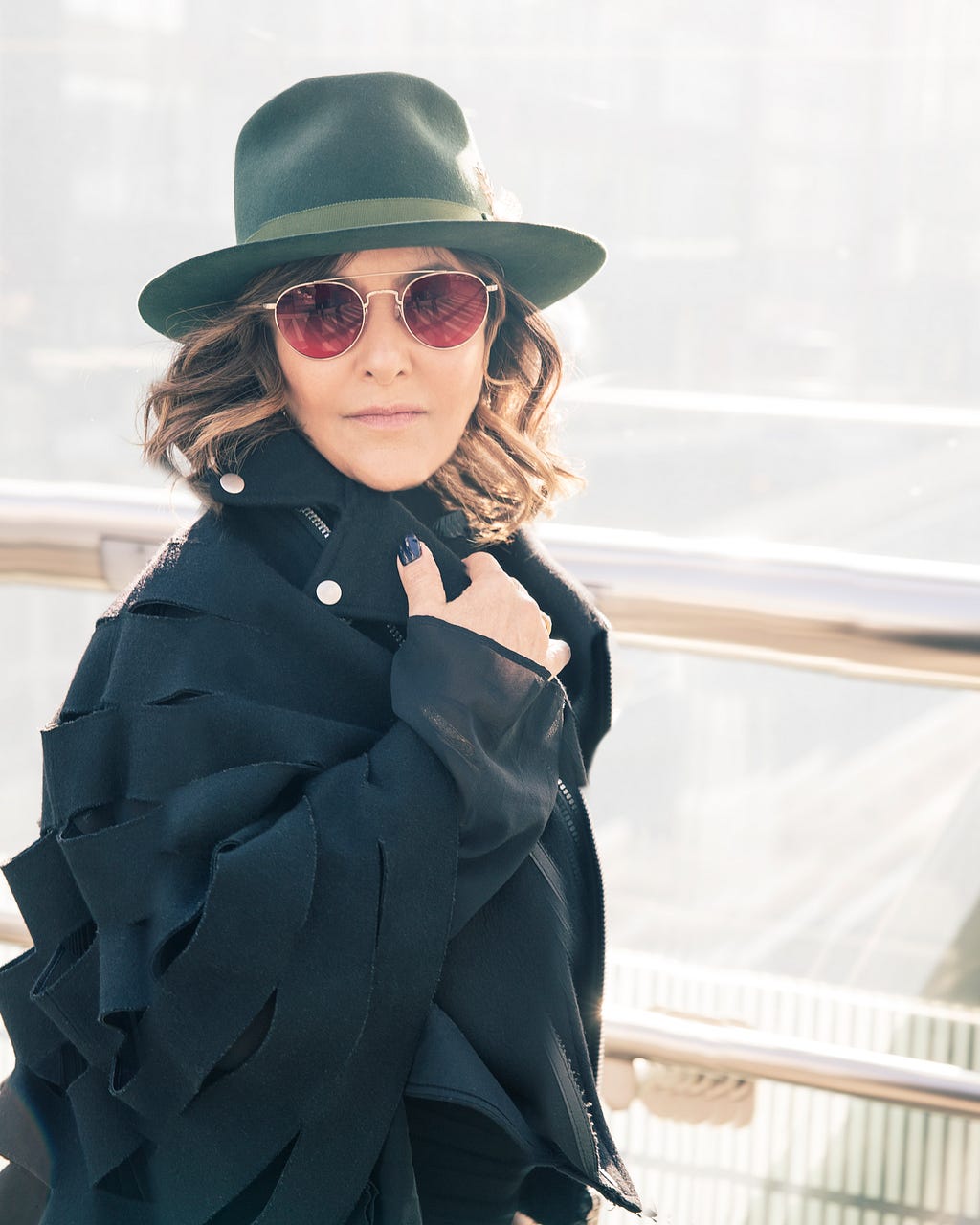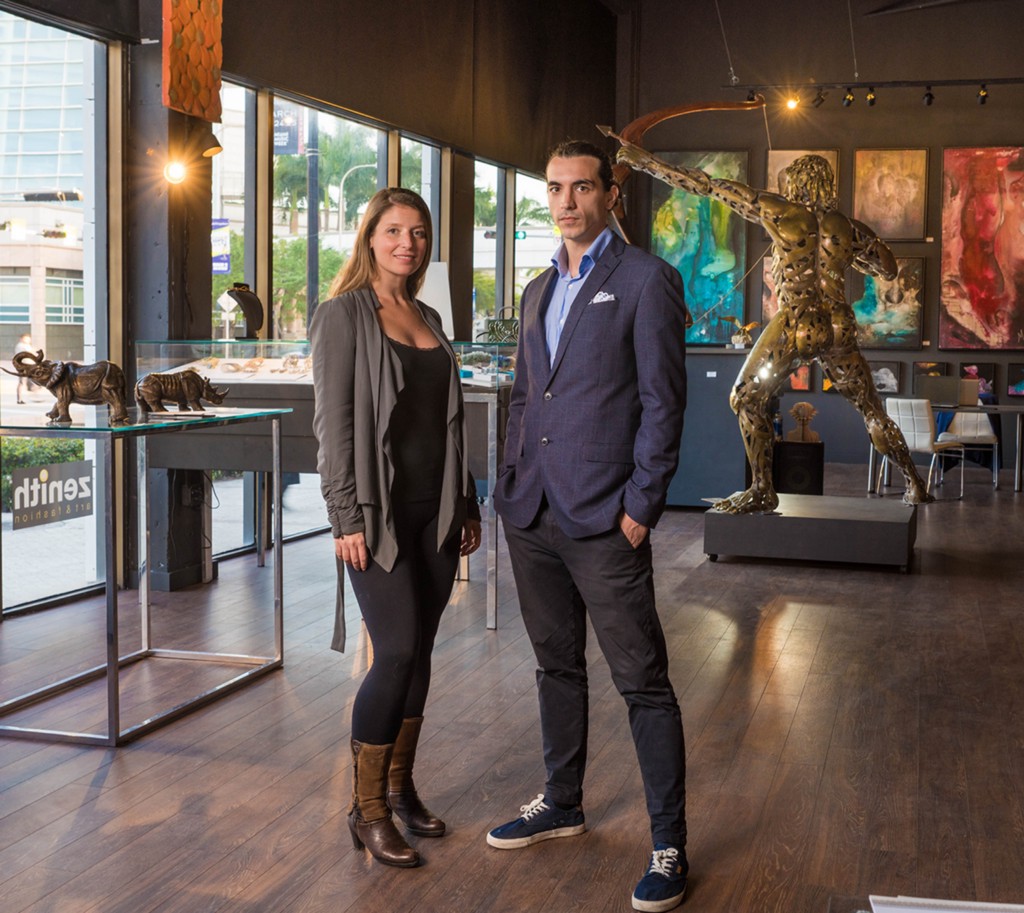An Interview With Candice Georgiadis

Get Social: We create a lot of social media content through Facebook, Instagram and even TikTok. Engaging videos of dental facts and even some fun posts from within our office.
As a part of our series about “dreamers who ignored the naysayers and did what others said was impossible”, I had the pleasure of interviewing Anaida Deti.
When Anaida Deti immigrated to Canada from Albania 15 years ago with her husband, she had only $500 in her pocket and a dream of opening her own business. Seven years, seven-day workweeks and a diploma later, she opened the doors to her very own dental hygiene practice, becoming CEO of Dental-X Smile Centers now DentalX. A registered Dental Hygienist, Anaida has made it her mission to educate patients on the importance of dental health.
Anaida is a member of the Canadian, Ontario and Toronto Dental Hygienists Association, and was elected as the ODHA Ambassador for Toronto North. She founded Mission Kind (Kids In Need of Dentalcare), to help children aged 6–16 obtain much needed dental work at no charge. In 2015, she became a finalist for the MOMpreneur Award for Excellence. Anaida is a coveted speaker at dental conventions and seminars. Her passion and dental expertise has garnered her media coverage in the Toronto Star, Elevate Magazine, and Focus Magazine. She has been a featured guest expert on Global Morning, BT, CTV News Channel, CP24, CTV News and Yahoo. She had a monthly dental column in Metroland Media called Deti Does Dental, and is a regular contributor to Huffington Post. You can connect with her @anaidadeti www.DentalX.ca
Thank you so much for joining us! Our readers would love to ‘get to know you’ a bit better. Can you tell us your ‘backstory’?
I was born in Albania, a very small country in Europe. I immigrated to Italy in 1997 to escape the civil war taking place in Albania at the time. I was only 16 years old and my parents were very scared that something bad would happen so they decided that it would be better for us all to move there.
The journey was not an easy one, I was going to school and working at the same time. After finishing high school, I decided to go to dental school. It has been my dream since I was a little girl to be a dentist. Dentistry was something that had always fascinated me. This does not mean that I wasn’t terrified to go to the dentist, because I still was, but there was something about it that I found very interesting. I used to say that when I become a dentist, my goal would be to help individuals who are nervous like me, to actually look forward to their dental appointments, and that has now become a reality.
In 2002, I met my husband and we decided to immigrate to Canada. We were two young people with big dreams and not much else. We had very little information, but when you are young you don’t think too much.
After many years of schooling and getting my license, I founded DentalX in 2013. Initially, DentalX started with only me, booking appointments in my car and seeing patients in the late afternoons or Sundays after I worked all day for other dental offices. Then, my next three offices I shared with other dental professionals until I was able to open my own office in 2016. The day that I signed the lease, I felt sick to my stomach and the only thing I could think of was how I was going to be able to pay the rent, but now I have an award-winning dental clinic in Toronto! I am also in the process of opening my second location.
Are you working on any new or exciting projects now? How do you think that will help people?
I always like to work on exciting projects. Currently I am working on motivational workshops and seminars. Although I am not sure when it will be possible to do in person sessions due to the pandemic, I think this will help people, giving them hope that everything is possible if you believe and work hard..
In your opinion, what do you think makes your company or organization stand out from the crowd?
DentalX is very unique. It’s slightly different from a traditional dental office because we focus more on the preventative side of dentistry and also offer longer dental appointments that include more extensive oral hygiene instructions that incorporate a lot of visuals.
The office also looks different, it feels like you’re in a spa rather than a dental office. We offer many different relaxing techniques for the patients in order to make their dental appointment(s) more comfortable and less intimidating. We specialize in seeing nervous patients that do not like going to the dentist. Our warm environment and approach makes them more comfortable.
My patients and my staff believed in my vision and saw something in us that other dental offices did not have, which is a good relationship between myself and them. My passion for the dental field and my commitment to taking care of patients was conveyed in the best way possible, and this made them believe in us.
Ok, thank you for that. I’d like to jump to the main focus of this interview. Has there ever been a time that someone told you something was impossible, but you did it anyway? Can you share the story with us? What was your idea? What was the reaction of the naysayers? And how did you overcome that?
When we came to Canada, things were not as easy as we thought. I didn’t speak English and my education credentials meant nothing here, so I had to start from scratch. It was quite difficult to say the least, but I was very determined to do something with my life and this was my chance. A lot of people did not take me seriously and that made me work harder and prove to myself and everyone around me that I can do it.
When I had just started the business in 2013, I became pregnant with my daughter and had some complications during the pregnancy. My daughter was a twin but I lost one of them. Due to this, my pregnancy was considered high risk and the doctor told me I had to be in bed for the remaining 7 months. I told the doctor I cannot do that, I had to work. She made me sign a waiver and told me I was nuts. I tried to be very careful, I was very scared and I do not know if I would have ever forgiven myself if something happened to my daughter, but my daughter is a fighter like me, and is now celebrating her 7th birthday.
I worked until the last day of my pregnancy and went back to work after 3 days! When the people saw me at the door, they could not believe their eyes. For the first two months, I had to drive home for lunch to breastfeed her and go back to work again. It was very hard.
But now, not only did I succeed in opening my own office, but I built a very successful business and I am in the process of opening a second office.
None of us are able to achieve success without some help along the way. Is there a particular person who you are grateful towards who helped get you to where you are? Can you share a story about that?
My family has helped me a lot. It’s a great help to have your family by your side. My husband built the whole office from scratch in a record time of less than two months. The last 3 days he didn’t sleep just to open the office for the date we had decided on. Also, my mother in law has helped a lot with the kids and the house so I can focus on making my dream a reality.
It must not have been easy to ignore all the naysayers. Did you have any experiences growing up that have contributed to building your resiliency? Can you share the story with us?
In general, people didn’t have anything nice to say. Somehow they want to see you fail, especially the people that are closest to you which is very sad. I have always ignored what people have to say and I have been focused on my family, my business and my life. These people make you work harder and be more successful.
Based on your experience, can you share 5 strategies that people can use to harness the sense of tenacity and do what naysayers think is impossible? (Please share a story or an example for each)
Community work: Every December our office offers free dental/dental hygiene services to people in need. For example, in December 2017, we partnered with the Red Door Family Shelter. We planned a whole day of activities for adults and children, including lunch, magic shows, and even a visit from Santa with gifts! The story garnered a lot of media attention which helped shine a spotlight on this shelter and for our charity work.
Last December, we offered free services to teenage moms that could not afford dental services. We had a whole day planned for them and their kids as well.
Don’t be shy: We walked around our area to introduce ourselves to local residents and businesses, answer oral health/dental questions and even provided small dental related samples and gifts.
Keep it going: As long as the weather cooperates, we usually have a table set up outside our office with flyers, toothbrushes, floss, and toothpaste for people passing by.
Get Social: We create a lot of social media content through Facebook, Instagram and even TikTok. Engaging videos of dental facts and even some fun posts from within our office.
What is your favorite quote or personal philosophy that relates to the concept of resilience?
I have a few that really resonate with me:
“Everything is possible with hard work and determination”-Timothy Weah.
“If your dreams don’t scare you, they are not big enough.”-Ellen Johnson Sirleaf
And my most favourite: “If opportunity doesn’t knock, build a door.” -Milton Berle
You are a person of great influence. If you could inspire a movement that would bring the most amount of good for the greatest number of people, what would that be? You never know what your idea can trigger.
I would love to empower young women, especially immigrants and newcomers to pursue their dreams regardless of how hard they think it is to achieve. I know how it is to find the right path, so I would love to mentor them and help motivate them.
Yes, it’s hard, but it’s not impossible…I’m an example of this!
Can our readers follow you on social media?
Ig: dentalx.ca
Facebook: DentalX
Twitter: @DentalXSmiles
LinkedInn: Anaida Deti
Thank you for these great stories. We wish you only continued success!
Anaida Deti of DentalX: They Told Me It Was Impossible And I Did It Anyway was originally published in Authority Magazine on Medium, where people are continuing the conversation by highlighting and responding to this story.




















